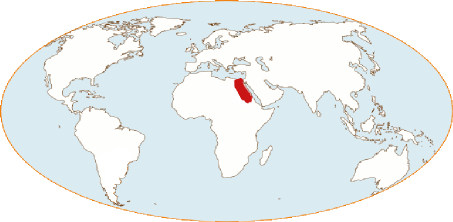Your search results [1 article]
Beer brewing in Egypt during the Old Kingdom (2700 to 2200 BC)
Beer, the Egyptian beverage par excellence, is attested from the 4th millennium in Upper Egypt (Hierakonpolis in Upper Egypt, 3500 BC). Its economic and social role will continue to strengthen throughout Egyptian history, at least until the beginning of the Christian era.
This preponderance of beer brewing in ancient Egypt owes nothing to chance. The inhabitants of the Nile valley are almost exclusively dependent on the river's floods. Its alluvium fertilizes the fields planted with wheat and barley. Egypt is a prodigious granary. Its inhabitants have derived from it something to eat and drink. This relative abundance provided important surpluses of grains which favoured the emergence and consolidation of a religious and military social class.
In the pre- and protodynastic period (3650 to 3185 BC), beer brewing became an economic activity organised within workshops and sponsored by a local authority (temple, town, king or local potentate). This workshop-brewery takes the form of a specialised place, closed or open-air, equipped for brewing (vats, pottery, heating device, etc.) in which about ten people work.
Are these brewing workshops growing alongside the domestic beer brewing ? I.e. alongside the occasional beer brewing at home, beer production integrated with culinary activities. The brewing workshops coexist with domestic brewing or, alternatively, this collective organisation (brewing workshop) is created from the outset, without the technical and cultural prerequisites of a domestic brewing[1]. The excavations at Hierakonpolis (Hierakonpolis in Upper-Egypt, 3500 BC) show that the stage of the brewing-workshop is reached around 3500 BC in Upper Egypt.
For more than 3500 years, phases of imperial centralisation have alternated with phases of power dislocation, regionalisation and foreign intrusions or influences. We are only interested here in the links that the Egyptian brewery has woven with the nascent political power of Upper Egypt during the time of the first dynasties and the Old Egyptian Kingdom.
The first dynasties strengthened royal power in Upper Egypt before uniting the two crowns (Narmer/Menès around 3150 BC). This period known as the "archaic period" ended around 2700 BC, followed by the Old Empire which consolidated the power of the pharaohs over the whole of Egypt. The brewery becomes an economic tool at the service of the pharaohs' authoritarian policy. It has to produce the thousands of daily rations of beer that the royal workforce requires. The supply of bread and beer reinforces the technical links between brewery and bakery. The social role of beer increases.
This period of Ancient Egyptian history is used as a reference in the analysis grid introduced on the page Granaries, Brewery and Political Power. In order to highlight the main features of this evolution, we will leave out many details[2]. Egyptian documentation is particularly rich. Beer is mentioned 50 times, bread 60 times, in the documents compiled by Breasted for the Old Kingdom[3].
[1] In the Egypt of the 4th millennium, domestic brewing has left no archaeological traces discovered to date. The oldest brewery remains (Hierakonpolis, Abydos) all bear the mark of centralized control of beer production. The scales of production here far exceed the needs of a family or household. There is no evidence that domestic beer brewing was a primitive stage that served as a starting point for the beer economy in the Predynastic Egyptian kingdom. On the contrary, the production of beer in the domestic world may have been a late development. It would be the result of a less strict control of the grains harvest. The freedom of family groups to decide for themselves how to use the grain harvested in the Nile valley would have led to a domestic beer economy.
[2] A detailed analysis of the Egyptian brewery will be the subject of specialised articles in the Explore section of Beer-studies. Otherwise, see Sinon Darby William, Ghaliounghi Paul, Grivetti Louis 1977, Food: The Gift of Osiris. Vol I & II.
[3] Breasted James Henry 1906, Ancient Record of Egypt. Historical Documents vol. I The first to the seventeenth dynasties.



